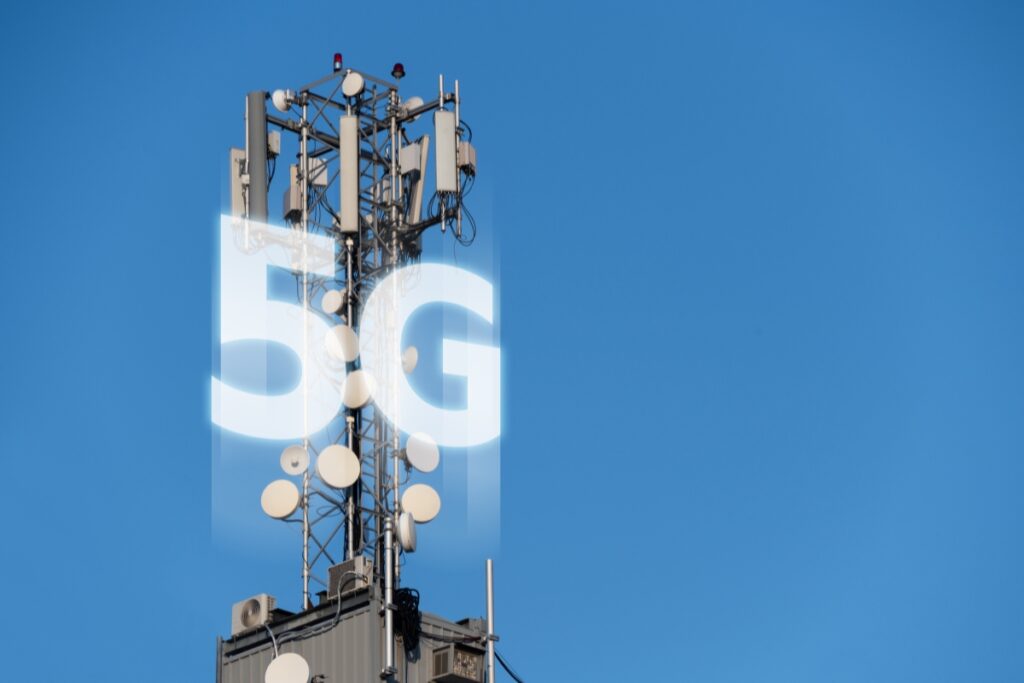What are Private 5G Networks?
In today’s fast-paced digital world, organizations need secure, reliable, and high-performance communication networks to protect mission-critical data and maintain seamless operations. This is why more and more enterprises are investing in private 5G networks, also known as private cellular networks or just “private 5G.” Unlike virtual private networks (VPNs), private 5G networks offer distinct advantages for large-scale organizations, educational institutions, and government agencies.
The Rise of Private 5G Networks
According to a recent report, the private 5G network market generated $2.6 billion in 2022 and is projected to reach $129.6 billion by 2032, growing at a compound annual growth rate (CAGR) of 48.2%. This surge reflects the growing interest in private 5G networks as organizations seek to enhance security, performance, and connectivity.
What is a Private 5G Network?
A private 5G network is a secure, restricted communication network tailored for a specific organization, business, or campus. It includes base stations, radio access networks, and other components found in public carrier networks but on a smaller, controlled scale. Unlike public networks accessible to anyone, private networks are limited to authorized users and devices, providing enhanced security and data protection.
Benefits of Private 5G Networks

Enhanced Security
Private 5G networks offer telco-grade security, encryption, and complete control over infrastructure, protecting sensitive information from unauthorized access and cyberattacks. This heightened security is crucial for safeguarding trade secrets, intellectual property, personally identifiable information (PII), and sensitive health records.
Improved Performance
With dedicated resources, private networks deliver faster data transfer speeds and optimized performance. They are ideal for large campuses like airports or ports, where WiFi may struggle with performance issues due to congestion and latency. Private networks ensure consistent, reliable connectivity, enhancing efficiency and productivity.
Custom Configuration
Organizations can customize private network configurations to meet their specific needs, optimizing network settings, prioritizing traffic, and implementing protocols that align with their workflows. This flexibility supports better organizational efficiency and productivity.
Stronger Access Controls
Granular control over user access allows organizations to define and manage permissions, ensuring only authorized users and devices can access sensitive data and network resources. This minimizes internal security risks and maintains a secure network environment.
Increased Reliability
Private networks provide highly available, reliable communication channels, crucial for critical business operations. They facilitate seamless collaboration, data sharing, and real-time interactions, avoiding the disruptions often associated with WiFi networks.
Challenges of Private 5G Networks
Despite their benefits, private 5G networks face several challenges:
Securing Licensed Spectrum
Licensed spectrum ensures exclusive access to frequency bands, but it can be challenging to secure due to existing ownership by public carriers. This scarcity can lead to competition and high costs for acquiring licenses.
High Implementation Costs
Deploying a private cellular network involves substantial upfront costs for hardware, software, and security infrastructure. Network slicing, which uses a portion of a telecom provider’s network, can also be costly, making private networks less accessible for smaller businesses.
Complex Maintenance Requirements
Private networks require ongoing maintenance and updates, demanding skilled personnel for troubleshooting, updates, and security. This complexity can strain IT resources, particularly for organizations without dedicated teams.
Private 5G Network Use Cases

IoT and IIoT
Private networks support Internet of Things (IoT) and Industrial Internet of Things (IIoT) applications by enabling efficient communication and real-time data processing. They facilitate predictive maintenance, optimize production processes, and enable faster data-driven decisions.
Digital Twins
Digital twins, virtual replicas of physical entities or systems, require robust connectivity for real-time data synchronization. Private 5G networks provide dedicated, reliable communication channels for managing these virtual representations.
Automated Guided Vehicles (AGVs)
AGVs benefit from the ultra-low latency and high reliability of private 5G networks, essential for real-time communication and control in environments like ports. Network slicing capabilities allow prioritization of AGV traffic, ensuring consistent performance and reliability.
Thinking About Building or Deploying a Private 5G Network?
Unlocking the full potential of a private 5G network requires real-time data processing capabilities. Organizations need to ensure their architecture supports this to fully leverage the benefits of private cellular networks.
At IK Technologies USA, we specialize in designing and deploying cutting-edge private 5G networks tailored to meet your specific needs. Our team of experts will work with you to ensure your network infrastructure is secure, reliable, and optimized for performance.
Scan the QR code to get in touch with us!


